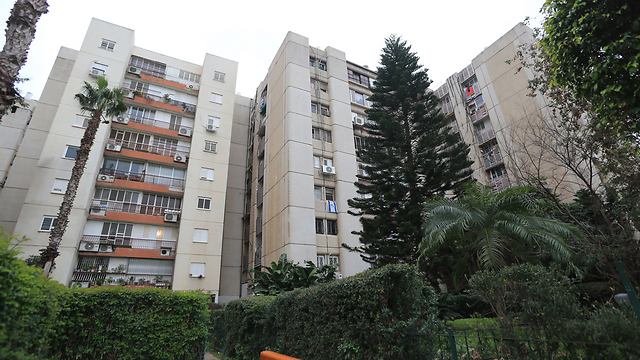
The cost of living in Israel: It’s as bad as you thought
The 'Start-Up Nation' it might be, with a high-tech economy that largely escaped the effects of the 2008 crash, but for many young families, Israel is an expensive place to call home.
A common complaint among Israelis is that the cost of living in their country is high, higher even than in European or North American states that might serve as a comparison to Israel. The "Start-Up Nation" it might be, with a high-tech economy that largely escaped the effects of the 2008 crash, but for many young families, Israel is an expensive place to call home.
On the one hand Israel’s “standard of living as per capita is in the middle range, better than the poor countries of the OECD like Turkey, Mexico, Greece, (or) Portugal,” Rafi Melnick, a professor of economics at the Inter Disciplinary Center, Herzliya, said, referring to the Organization for Economic Cooperation and Development. On the other hand levels of poverty are worse in Israel than in most other countries in the Western economies club, Melnick told The Media Line.
Made up of 34 countries, the OECD is an organization which aims to foster international trade, open market economies and democracy. Most of the club members are developed economies with high Human Development Indexes, a statistic used to rate standards of living between countries.
It is an organization that Israel joined in 2010, allowing Israelis to accurately compare their economy to other Western nations’ markets, a comparison that doesn’t reflect well on the country, some believe.
“The ratio between how much people earn and how much they have to spend to live is worse than in other countries,” Noam Shani, a new father who works in the tourism industry, told The Media Line. This is a feeling shared by many Israelis and also backed up by the statistics.
“Because of restrictions on the food market and the price of housing, the cost of living in Israel is high compared to that of the OECD countries,” Melnick confirmed. This is something especially felt by working class Israelis who are often undercut in terms of wages by the country’s foreign workers, many of whom are in fact Palestinians who come to work each day from the West Bank, the economist explained.
High levels of poverty among the Arab and the ultra-Orthodox communities, where only one member of the family might actually go out to work, also undermines Israel’s economic standing in comparison to its OECD partners, Melnick added.
But middle-class Israelis are not unaffected by the cost of living in the Holy Land. Gal Mor is a business owner who lived in Berlin for several years. The price of basic necessities is markedly higher in Israel than in Germany, the father of three told The Media Line.
Food and housing are often cited as disproportionately high by Israelis, something Mor also commented on. “Another cost is transportation in a roundabout way, because public transportation (in Israel) doesn’t work so well. It doesn’t work on weekends, it’s not frequent or reliable enough… you can’t really count on it,” Mor said. When they lived in Berlin it was possible to get by using just public transport, while in Israel an average family with several children and both parents working needs two cars, Mor explained. This is an additional expense in a country where cars, their insurance and gas, are notoriously expensive.
Added to this is the fact that wages are often lower in Israel than in other countries where the cost of goods is comparable. “That’s the ultimate thing that has an impact – you earn less, your buying capacity is already lower,” Mor said.
Others point to the price of housing as the number one burden. “Rent is high and the cost of real estate is high… and the government has done nothing to change that,” Noam Shani argued. Like many middle-class Israelis, Shani said he received help from family members that made it possible to navigate the country’s expensive housing market. In this regard he said he was lucky, “I know for a fact that there are a lot of people that don’t get that (help) and these people are in big trouble.”
The question as to "why" the cost of living is so high is less easily answered than "how."
A possible explanation is that the government is so frequently distracted by other issues that it doesn’t focus on the economy to the degree that a European administration would, Rafi Melnick suggested. The lack of practical action to reduce the increase in housing costs over the last eight years is one example, the academic noted, saying “It really reflects the fact that the government is busy taking care of other things, not the standard of living.”
But this seems to be what Israelis want. Despite their complaints, voters consistently fail to prioritize the economy when voting. “If you analyze the elections since, well, forever, for most Israelis questions of security dominate their voting decision,” Melnick concluded.












